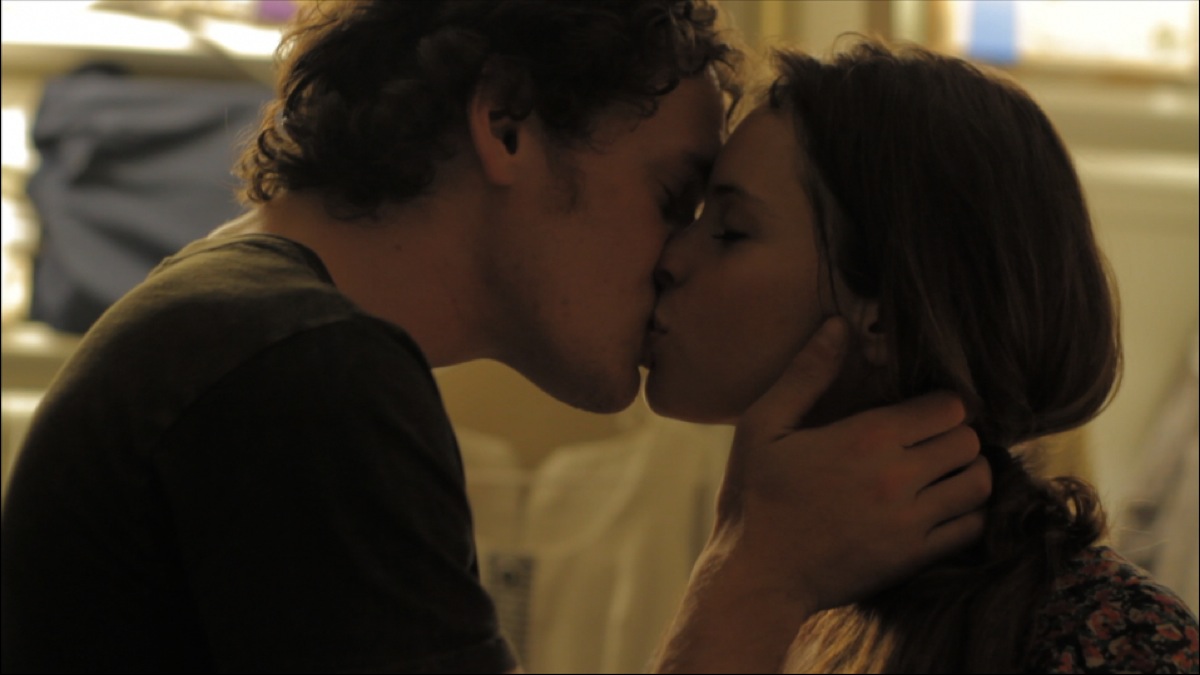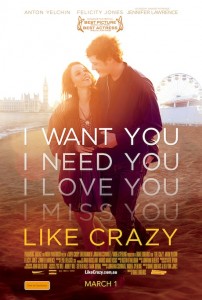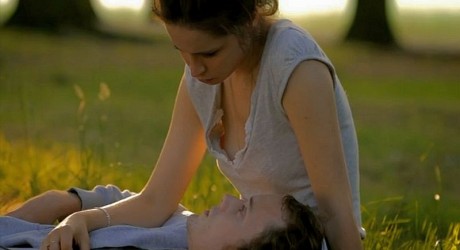A refreshingly improvised romance emerges from a sea of tightly scripted genre films, showcasing the talents of rising stars Felicity Jones and Anton Yelchin.
[stextbox id=”grey” caption=”Like Crazy (2011)” float=”true” align=”right” width=”200″]
Director: Drake Doremus
Writer(s): Drake Doremus, Ben York Jones
Runtime: 90 minutes
Starring: Anton Yelchin, Felicity Jones, Jennifer Lawrence, Alex Kingston
Distributor: Paramount
Country: US
Rating: Better Than Average Bear (?)
[/stextbox]
Like Crazy is released internationally in the shadow of the Sundance Film Festival behemoth, where it won the Grand Jury Prize all the way back at the 2011 festival. While director Drake Doremus isn’t exactly a household name, at least not yet, his previous feature Douchebag also played at Sundance in competition the following year. For his third feature, he brings us one of his most personal stories to date, reenacting (according to Austrian-born ex-wife Desiree Pappenscheller) much of their romantic history.
Jacob (Anton Yelchin) and Anna (Felicity Jones) meet at college in the US, and promptly fall in love. After an intense period of romance, Anna decides to break her visa and not return to her native UK in order to spend more time with Jacob. However, when she eventually goes home for a wedding, she is denied re-entry into the US for having broken the terms of her initial visa. So begins a long-distance romance between the pair, testing the limits of their love and the very notion of what a relationship is.
Like Crazy offers an amazingly intense and intimate portrait of a relationship as it grows and fades. If the emotional reactions seem like genuine ones, it’s because they are to some extent. What is truly remarkable about the film is that while the scenarios were scripted, the dialogue and individual moments were entirely improvised. Actors Jones and Yelchin were given a “scriptment”, much like the TV shows in the vein of Curb Your Enthusiasm, where the scene had a purpose but it was up to the actors how that scene played out. Yet moving this technique from comedy to drama is a bold one, bringing the same freshness to melodrama.
This would not be possible, of course, without two strong leads and the impressive Jones and Yelchin are the very model of a young couple in love. What is essentially a two-hander, with the exception of a few people who drift in and out of their lives, is driven by their dual passions for finding the truth in these characters. The relationship is either doomed or fated to be from the start, begging the larger question of what happens when you do find the person you are supposed to be with from the start. The purposely ambiguous ending makes us question whether this love is just an illusion, as manufactured as the Go-Kart/beach montage that indicates they are now in love, but the relationships that they do develop with other people (including an incredibly patient Jennifer Lawrence) seem to be simply biding their time. On the other hand, could love simply be the ache we feel for something we can’t have?
Shot on the inexpensive Canon EOS 7D DSLR camera, a consumer level piece of equipment, the rawness of this imagery enhances rather than detracts from the realness of the scene. As Ryan Adams once sung, “When you’re young you get sad, then you get high”, and Like Crazy aims to strip raw the illusion of youth, back to these bare essentials. The slow and meandering pace serves to capture the frustration of aching to be something or with someone that may never come to pass, but having to keep on living regardless of what the heart wants.
[stextbox id=”custom”]A touching and genuine love story, told from a place of truth that strips love of its mystery and replaces it with the highs and lows of living.[/stextbox]
Like Crazy is released in Australia on 1 March 2012 from Paramount.






